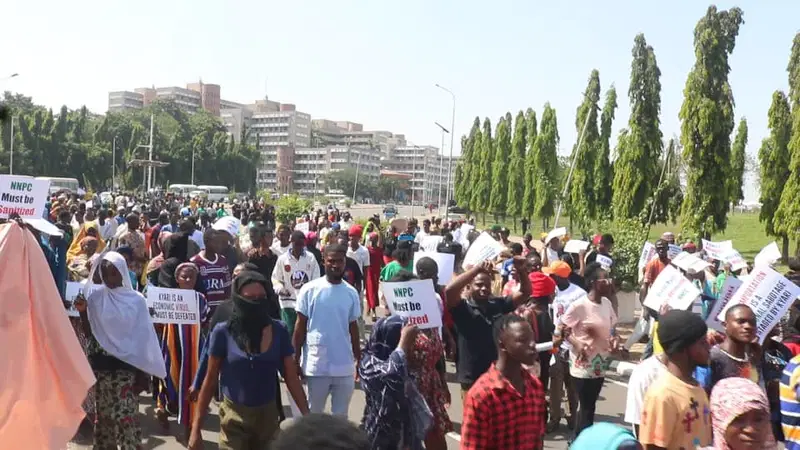Prorests erupted as hundreds of activists gathered in Abuja’s Three Arms Zone, rallying outside the National Assembly Complex. The protesters, organized by the APC Solidarity and Development Forum and supported by youth groups and civil society organizations, voiced their frustration over Nigeria’s escalating fuel crisis and economic struggles.
The demonstrators called for urgent reform in the oil sector, pointing to skyrocketing fuel prices, severe fuel shortages, and the government’s perceived failure to manage these issues effectively. As economic hardships deepen across the country, citizens are increasingly losing confidence in the government’s ability to handle vital resources.
Leaders of the protest, Comrade Kabir Matazu and Danielsi Momoh, emphasized the systemic failures in Nigeria’s oil sector, describing them as “unacceptable.” In a letter submitted to Senate President Godswill Akpabio and House Speaker Tajudeen Abbas, the leaders criticized ongoing fuel shortages and high prices, despite government promises of improvement.
The activists highlighted the lack of functional local refineries despite a $4 billion government investment, calling this an oversight that undermines the administration’s ‘Renewed Hope’ agenda. They expressed concern over the lack of a concrete strategy to revitalize these refineries and urged for a leadership change to restore accountability.
Addressing corruption within the oil sector, the protesters demanded strict oversight to curb the import of low-quality petroleum products, which they say poses a health risk to citizens. They called on the National Assembly to establish a special investigative committee to probe alleged mismanagement, with demands that any officials involved in misconduct face prosecution by the Economic and Financial Crimes Commission (EFCC).
The protest leaders stated, “We demand a clear roadmap for the revitalization and operationalization of our local refineries to ensure self-sufficiency in petroleum products and reduce reliance on imports.”










